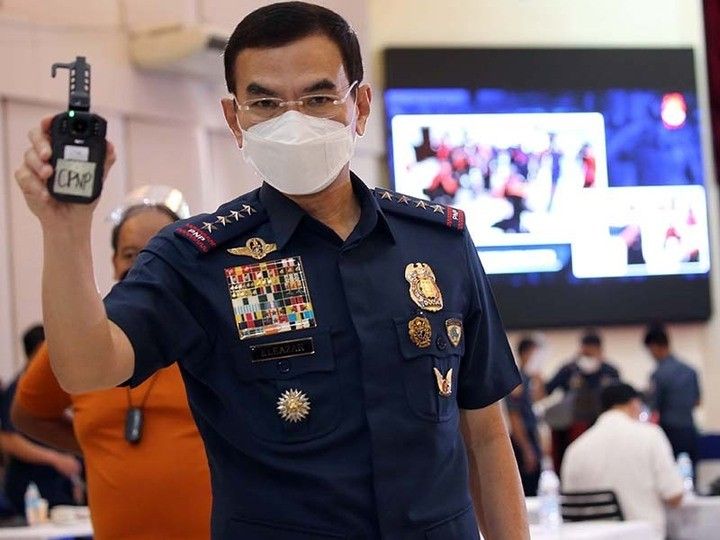PNP launches info drive on new SC rules on body cams

MANILA, Philippines — The Philippine National Police has ordered a "massive information drive" to disseminate the new rules promulgated by the Supreme Court into police guidelines on the use of body-worn cameras within its ranks.
This was confirmed by Police Gen. Guillermo Eleazar, PNP chief, in a video statement sent to reporters Sunday afternoon.
"It's only appropriate for the PNP to prepare for the implementation of the rules as these are a product of the cooperation between the Supreme Court and the PNP," the police chief said.
According to Eleazar, Police Lt. Gen. Israel Ephraim Dickson, PNP Deputy Chief for Operations, has already been directed to coordinate with the PNP Legal Service and the PNP Human Rights Affairs Office to make cops aware of the new rules.
To recall, the PNP chief also disclosed earlier on Saturday that he ordered the creation of a technical working group to study and incorporate the new rules.
The technical working group, he said then, will come up with training modules and seminars on the use of body cameras for police units.
"This means they will be part of our police operational procedures," he also said.
He did not mention when the PNP Revised Operational Procedures, a public document that anyone can access, will be updated. They were last revised in December 2013.
At the onset of his term, Eleazar expressed hope that the newly acquisitioned body cameras would prevent abuse by cops and keep erring cops accountable.
The High Court on June 29 issued the Rules on the Use of Body-Worn Cameras requiring law enforcement agents implementing arrest and search warrants to be wearing at least two cameras in the conduct of official operations.
The rules came amid mounting calls for safeguards on rules they claimed have been weaponized against dissenters and activists.
READ: SC now requires law enforcers to wear body cameras in implementation of warrants
“There are increasing reports of civilian deaths resulting from the execution of warrants issued by trial courts, the causes and conditions surrounding such deaths being widely disputed,” the Rules read.
“Advances in technology, particularly the availability of body-worn cameras, make it possible to integrate its use to support law enforcement and to guarantee the protection of fundamental rights,” the SC also said.
— Franco Luna with reports from Kristine Joy Patag and Bella Perez-Rubio
- Latest
- Trending






























